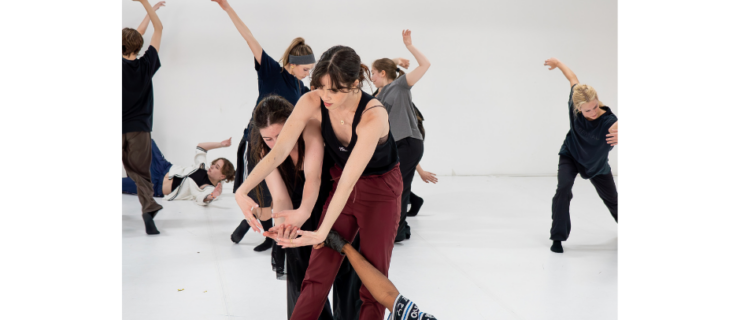Advice For Dancers
July 24, 2007
Former New York City Ballet dancer Linda Hamilton, Ph.D., is a lecturer, a psychologist in private practice, and the author of
Advice for Dancers (Jossey-Bass). She has been offering advice to Dance Magazine readers since 1992.
Advice for Dancers (Jossey-Bass). She has been offering advice to Dance Magazine readers since 1992.
I
thought the BFA program I’m in would be the one of my dreams, but it’s a huge disappointment. I want a college department with smaller dance classes and more attention from my teachers to help me progress. So how come I feel so weird about changing my mind?
thought the BFA program I’m in would be the one of my dreams, but it’s a huge disappointment. I want a college department with smaller dance classes and more attention from my teachers to help me progress. So how come I feel so weird about changing my mind?
Frustrated Dancer
Oakland, CA
Join the crowd. Most people become uncomfortable when they give up on their first choice, even if it’s wrong. There’s nothing magical or lucky about a first choice, yet it’s still hard to handle the discomfort at switching gears. Psychologists refer to it as the “first-instinct myth.” In your case, the decision to transfer to a smaller BFA program that could provide a greater opportunity to nurture your talent seems sound. Remember: Ultimate success depends on being able to identify what is—and isn’t—working in your life. Then go for it!
One of my toes crosses over the other on the right side and I have to be careful my pointe shoes aren’t too snug. Do you know what medical or therapy options I should look into so I won’t have to give up my dance lessons?
Seeking Relief
Ithaca, NY
Dance medicine specialists tell me that “cross-over” toes may require surgery if the ligaments continue to stretch out. While this problem occurs for a variety of reasons, it’s most common in dancers with bunions, where it’s easy to overload the joint, creating looseness and instability. You often can keep your toes from crossing over by taping them into place, preventing a marked deformity. For information, contact a dance medicine orthopedist or physical therapist. Regardless of the injury, knowledge is power.
As a former ballerina with the New York City Ballet with positive memories of dance classes, I was appalled to hear that my 3 1/2-year-old granddaughter was humiliated and told to leave her pre-ballet class by a mean-spirited dance teacher. Her crime? Taking a few extra seconds before she followed the teacher’s instructions to sit down. When I worked for Mr. Balanchine, he never found it necessary to be harsh and would often use imagery to inspire us. My daughter has enrolled her in another dance school. However, it makes me wonder: What is the proper atmosphere for learning in a ballet class?
Allegra Kent
New York, NY
I’ve conducted research with nearly 1,000 dancers, and I’ve found the best atmosphere for learning is a “safe” classroom, free from all forms of verbal abuse. Dancers who report feeling publicly humiliated by their teachers have more injuries to feet, ankles, knees, back, and hips than their colleagues. They also can have more symptoms of stage fright. Teaching toddlers (ages 3 to 6) requires even greater sensitivity, given that they learn about rules through play, not fear. In fact, it’s silly for teachers to expect very young dancers to adopt a work ethic until they reach the appropriate developmental stage during the elementary school years. The more dance instructors understand and take a positive approach to learning, the better equipped they’ll be to help students reach their true potential.
I’m exhausted from rehearsing and performing, but I get enough sleep and I eat well. Will aerobics give me a boost?
Pooped Professional
New York, NY
Yes, but be careful. While interval training will increase your energy level, the number of aerobic sessions should be tailored to your dance schedule. Twenty to forty minutes, three to four times a week, will get you in shape to perform. Once the season gets really busy, move to a maintenance program of one to two weekly sessions to avoid fatigue, which is the leading cause of injuries.
Is it normal for a 16-year-old dancer to get homesick? Last year my friend attended a summer dance program in another city and cried every night. I plan on joining her for their winter program. I’m excited about it but don’t want to be miserable, too. What can I do?
Carla
Tampa, FL
Almost everyone experiences homesickness the first time they head off to school or summer camp. You can prevent a lot of the distress that your friend suffered by finding out what to expect, from the daily class schedule to the school’s layout. Fend off homesickness by making new friends, getting involved in school activities, and sightseeing. Homesickness also tends to dissipate the second time around, so your friend should be in better shape to support you.




